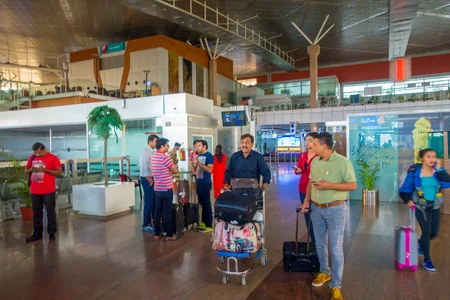Whether you’re heading to Brazil or China, it’s important to know the pros and cons of each country’s visa requirements. This article will examine Brazilian visas vs. Chinese visas from both an Indian perspective as well as an international perspective.
Indian Visa for Brazilian Citizens
The Brazilian Embassy in Beijing is currently processing Indian visa applications for Brazilian citizens. The Brazilian Embassy in New Delhi is currently processing Indian visa applications for Indian Visa for Chinese Citizens.
The Brazil-China Economic and Trade Cooperation Agreement was signed in 2007, and provides for the facilitation of visits by businessmen and women from both countries. The two countries have also agreed to cooperate in the field of education, culture, tourism, agriculture, information technology and the pharmaceutical industry.
Brazilian to India
Indian visa for Brazilian citizens is much easier to obtain than Indian visa for Chinese citizens.
Brazilian visas are issued by the Brazilian Consulate in your home country, whereas a Chinese visa must be obtained from the Embassy of China in your home country. The process for obtaining a Brazilian visa is much simpler and takes only a few days to complete, while the process for obtaining a Chinese visa can take weeks or even months.
Another advantage that Brazilian citizens have over Chinese citizens when it comes to obtaining an Indian visa is that Brazilian passports are usually accepted as valid travel documents by many countries, including India, whereas Chinese passports are not always accepted.
Chinese Indian Visa
If you are a citizen of China and want to visit India, you will need an Indian visa. However, if you are a citizen of India and want to visit China, you will only need a Chinese visa. This is due to the fact that China and India have established diplomatic relations in 1949. Indian Visa for Brazilian Citizens
The process for obtaining an Indian visa can be time-consuming, so it is recommended that you contact your local consulate or embassy in advance if you are interested in travelling to India. The process for obtaining a Chinese visa is much simpler, and most consulates will accept applications without having to attend an interview.
China, India, Brazil Relationship
As China and India continue to grow closer economically, their relationship has also blossomed into a comprehensive trade and investment partnership. This has led to increased travel between the two countries, with more Chinese tourists visiting India each year than Indian tourists visiting China. As a result of this growing relationship, there have been a number of discussions within the Indian government about expanding visa-free travel for Chinese citizens. Currently, both countries offer visa-free travel for holders of ordinary passports from each other’s respective passport-holding countries. However, there are some notable differences between the Chinese and Indian visa regimes that may make travelling to either country via visa-free travel more difficult for Chinese nationals.
For Brazilian citizens, visa-free travel is available to all Chinese citizens who hold an ordinary passport from any country. In addition, Brazilian citizens can stay in China for up to 90 days without a visa provided they stay within the cities of Beijing, Shanghai, Guangzhou and Shenzhen. For Chinese nationals travelling to Brazil, however, the visa requirements are much more restrictive. All Chinese nationals must obtain a tourist visa before travelling to Brazil and must remain within the city limits of Rio de Janeiro, Sao Paulo or Salvador while in Brazil. Furthermore, they
Conclusion
When it comes to obtaining an Indian visa, Brazilians have the advantage of being able to apply online. This makes the application process considerably faster and easier than for Chinese citizens, who must go through the consulate in their home country. However, Brazilian citizens do not enjoy the same privileges when it comes to working and studying in India. In fact, many visas are only valid for a certain number of years, which can make staying in India difficult if you plan on staying for longer than that.
